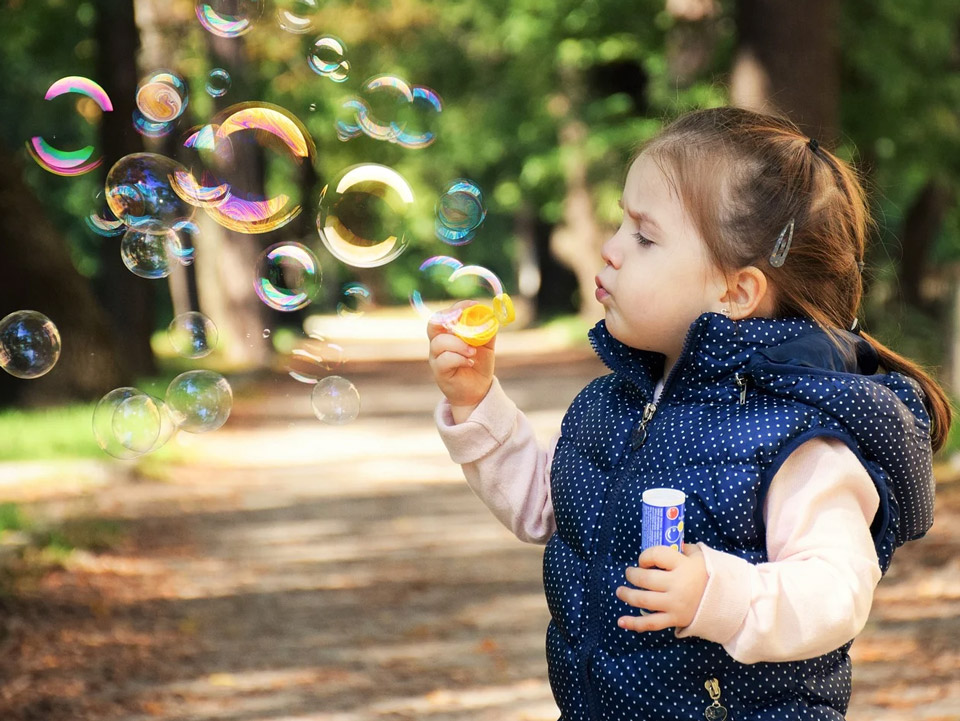How to Protect Children from Environmental Risks
 Keep pesticides and other toxic chemicals away from children
Keep pesticides and other toxic chemicals away from children
- Store food and rubbish in closed containers to keep pests from coming into and around your home.
- Use baits and traps when you can; place baits and traps where kids can’t get them – also contact pest control specialists.
- Read product labels and follow directions.
- Store pesticides and toxic chemicals where kids can’t reach them – never put them in other containers that kids can mistake for food or drink.
- Keep children, toys, and pets away when pesticides are applied; don’t let them play in fields and gardens after pesticides have been used for at least the time recommended on the pesticide label.
- Wash fruits and vegetables under running water before eating – peel them before eating, when possible.
Protect children from chemical poisoning
If a child has swallowed or inhaled a toxic product such as a household cleaner or pesticide, or gets it in their eyes or on their skin!
- Call 999 if the child is unconscious, having trouble breathing, or having convulsions.
- Check the label for directions on how to give first aid.
Help children breathe easier
- Don’t smoke and don’t let others smoke in your home or car.
- Keep your home as clean as possible. Dust, mould, certain household pests can trigger asthma attacks and allergies.
- Limit outdoor activity when air pollution is especially harmful.
- Walk, use bicycles and take public transportation when you can.
- Avoid open burning fires.
Protect children from carbon monoxide (CO) poisoning
- Have fuel-burning appliances, furnace flues, and chimneys checked once a year.
- Never use gas ovens or burners for heat; never use barbecues or grills indoors or in the garage.
- Never sleep in rooms with unvented gas or space heaters.
- Install a CO alarm that meets British Standard Regulations.
Protect children from contaminated fish and polluted water
- Learn what’s in your drinking water – call your local public water supplier for annual drinking water quality reports.
Protect children from too much sun
- Wear hats, sunglasses, and protective clothing.
- Use sunscreen with SPF 15+ on kids over six months; keep infants out of direct sunlight.
- Limit time in the mid-day sun – the sun is most intense between 10 AM and 4 PM.
Too much heat
- If you are pregnant try to stay cool, stretch your legs and sip water more often than usual to prevent dehydration.
- Infants and young children overheat quickly and are less able to adapt to extreme heat. Offer sips of water often.
- Dress infants and children is loose, lightweight, light colour clothing.
- Children may not ask for water and may not be aware that they need to cool down.
- Never leave infants in a parked car.
- Help children find places to cool off when they are overheated.
- Ensure that children drink plenty of water before and after athletic events.
- Monitor children, and even teenagers, for signs of heat-related illness, provide water, and have a plan to combat heat illness.
- Seek medical care right away if your child has signs of heat-related illness.
Avoiding ticks
- Keep the ticks away from your child to prevent Lyme disease.
- Have children wear protective clothing, such as socks, shoes and long trousers if possible.
- Reduce tick habitats by keeping grass short and removing brush from play areas.
- Parents should apply insect repellent rated for ticks on children. Always follow label instructions and avoid applying on hands or near eyes and mouth.
- Check children for ticks after they have been outdoors, especially in wooded areas and meadows and especially from April to September.
- Teach children how to check themselves for ticks, and what to do if they find one.
- Have children bathe or shower after playing in woods or grassy fields.
Stopping mosquito bites
- Use insect repellents when your children play outdoors. Always follow the label directions.
- Wear long sleeves and trousers from dusk through dawn when mosquitoes are most active.
- Install screens on windows and doors.
- Help reduce the number of mosquitoes around your home by emptying standing water from containers, flowerpots, gutters, buckets, pool covers and keep doors and windows closed if possible after dark.


